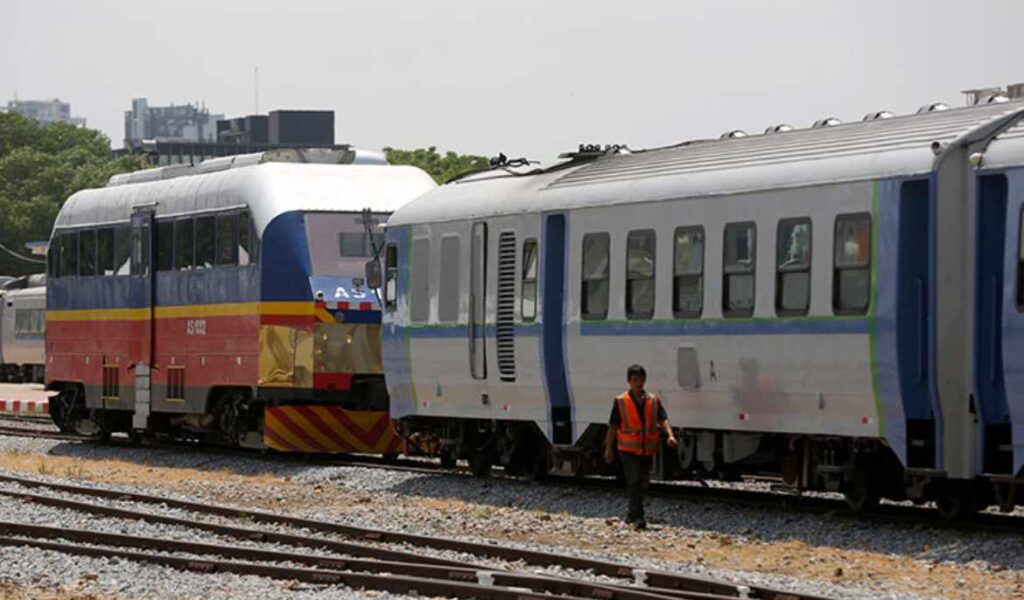Chinese President Xi Jinping’s recent state visit to Cambodia once again ignited the hopes of the $4 billion high-speed railway project, as the Chinese ambassador announced productive discussions with the Royal Government on Saturday.
A day after President Xi concluded his fruitful visit to the Kingdom, Chinese Ambassador to Cambodia Wang Wenbin during a presser with media reiterated that China is closely monitoring the development of the Kingdom’s high-speed railway network, saying that a potential railway project connecting Cambodia to China is also under discussion.
“I believe the Chinese government places great importance on railway cooperation, and we will actively promote the project,” he said.
Ambassador Wang said that China considers the railway cooperation as a key priority, not only for Cambodia and China but also for fostering people-to-people ties and enhancing bilateral trade and multilateralism.
“We believe that expanding railway cooperation will benefit both countries, strengthen the regional connectivity and improve transportation efficiency for both passengers and goods,” he said.
Discussions are ongoing regarding the regional railway grid, particularly on which countries the railway should traverse to ensure transportation efficiency and maximize trade routes, said Ambassador Wang, adding, “More discussions on the Cambodia-China railway will be held shortly.”
He emphasised that the Shared Future initiative between the two nations is reflected in their mutual support for safeguarding each other’s core interests.
Speaking to Khmer Times, Seun Sam, a policy analyst at the Royal Academy of Cambodia (RAC), noted that during President Xi’s visit to the Kingdom, China demonstrated that the terms ‘Steel Friend’ and the ‘Diamond Cooperation’ with Cambodia are more than just symbolic.
Sam pointed out that Laos serves as a strong example of successful railway cooperation with China in recent years, despite its limited resources and small population, conditions similar to our country.
He continued, “Late last year, I had the opportunity to experience the Lao-China railway, travelling from the capital Vientiane to Luang Prabang, and continuing into China’s Yunnan province.
This high-speed railway, which reaches speeds of up to 190 km per hour, is a historic achievement. It provides smooth transportation for Lao citizens while boosting trade, investment and business activities with Chinese investors.”
Sam emphasised that Cambodia shares borders with Laos and Vietnam, and the Royal Government has expressed its desire to improve the domestic railway network and establish regional connectivity to maximise benefits.
However, he underscored that such a critical project requires a strong master plan, effective negotiations and significant investment.
He noted that President Xi’s recent visit to Cambodia addressed this issue during discussions, which could serve as a potential starting point.
“Although no significant agreements or official decisions were made, I still believe this marks a positive step toward the Kingdom’s future railway infrastructure development,” he added.
It may be recalled that in January 2023, former Prime Minister Hun Sen, current President of the Senate, sought financial support from President Xi for the development of a $4 billion high-speed railway linking Phnom Penh to key economic hubs near Cambodia’s borders.
Prior to his visit to Beijing, Mr Hun Sen said, “I hope that my upcoming visit will yield new projects, as we have to rely on our friend, China, to support the country’s development, including the high-speed railway.”



